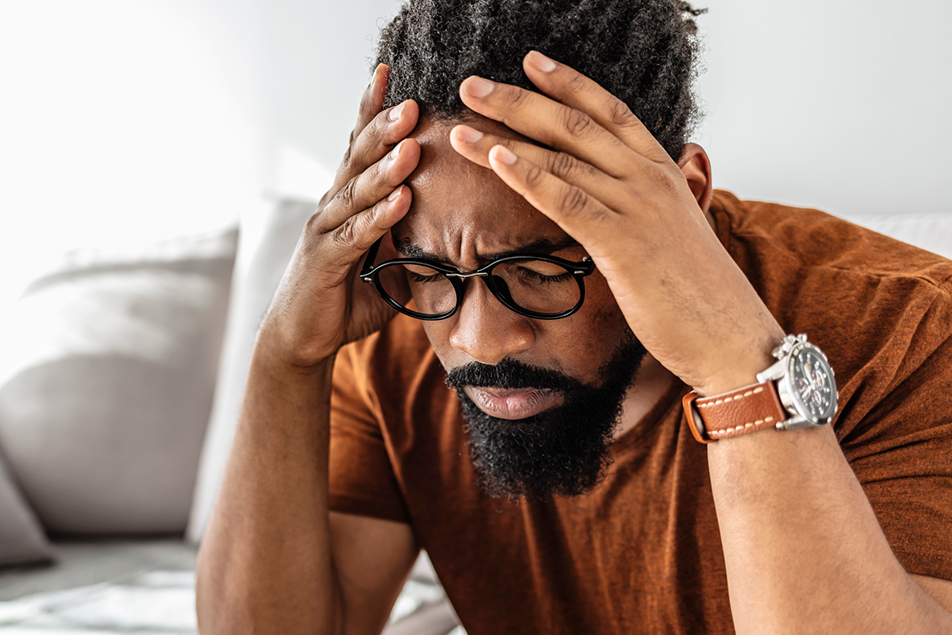
This post was written by the Parkview Physicians Group Comprehensive Pain Management Psychology Team.
The number of adult Americans suffering from chronic pain exceeds the number of those with heart disease, cancer and diabetes combined. Chronic pain does not just affect the individual person; the condition also has a far-reaching impact on family members, friends, coworkers and communities.
What is chronic pain?
First, let’s address the difference between chronic pain and acute pain. With acute pain, the pain serves a protective role, letting us know when we have had an injury or accident, giving us the cue to get away for our safety. Acute pain resolves when the injury heals within a reasonable timeframe. If pain persists beyond several months, it can become chronic. At this point, the body tends to get caught up in a loop where the brain continues to believe there is a threat to our safety, even when that threat is not there.
Chronic pain and our mental health
Many people understandably, yet erroneously, believe that pain is just physical. In fact, chronic pain, by definition, involves both physical and emotional sensations, and is now considered to be influenced by a variety of biological, psychological and social factors. Because pain and emotion share some pathways in our nervous system, perceived pain is accompanied by fear and anxiety, as well as anger, frustration and depression. Thus, there is a "bi-directional" relationship between pain and emotions like anxiety and depression. When pain flares, so do emotions and vice versa. When we experience more stressors and struggle with managing our emotions, we tend to notice that our physical pain increases, too.
Every person's experience of pain is unique and subjective. Chronic pain is often an "invisible" condition, which sometimes makes it difficult to recognize and treat. Unfortunately, some stigma is still associated with chronic pain, making people reluctant to seek help. Additionally, there is a natural tendency to withdraw from social situations and limit enjoyable activities because we fear rejection, or perhaps worse, we fear that our activity will lead to more pain.
Tips for addressing chronic pain
But do not despair! There is help and hope. Access to a comprehensive treatment model that addresses the full gamut of the factors involved in chronic pain is something we refer to as "pain hygiene." Pain psychologists certainly play an important role on the treatment team to help patients and families set and achieve goals, develop and use coping skills, learn to pace themselves properly, manage stress, and address the depression and anxiety as well as the sleep disturbances that often accompany chronic pain. Pain psychologists work collaboratively with pain specialists who offer expertise in a wide range of medication and interventional treatment options. In this team approach, providers address both the physical and emotional aspects of pain.
Of course, patients can expect a pain psychologist to ask many questions about their pain, but patients will also be asked to share other information about themselves through a thorough interview along with several screening tools. The information is used to inform an individualized treatment plan that focuses on helping people manage day-to-day pain and ultimately improve their quality of life.
Here are some tips to help you move toward a more manageable life with chronic pain:
Pace yourself! When we have a “good day,” we often become overachievers, trying to work through every item on our long to-do list. Don't let yourself fall into this trap. Rather, recognize that the better approach, which is actually more efficient in the long run, is to alternate between periods of activity and relatively short periods of rest.
Keep moving. Movement is one of the best things you can do to keep your pain at bay. Exercise releases endorphins, the chemicals in our brains that improve mood and block pain signals.
Distract yourself. Find something to take your mind off your pain. Maybe you've been interested in taking up a new hobby. Now is the time … just do it.
Phone a friend. There is value in social support when you have chronic pain. Take action to reach out to family and friends. For example, plan a lunch date with a friend.
Keep a positive and grateful mindset. Easier said than done when you are in pain, right? But it's important! Try to make it a practice to identify at least one thing for which you are grateful.
Pain psychologists can help with recognizing negative thought patterns you might have developed around your pain, challenging those negative thoughts, and replacing them with alternative thoughts that are less negative and more helpful. Our highly trained psychology team utilizes techniques, including Eye Movement Desensitization and Reprocessing (EMDR) and Cognitive Behavioral Therapy (CBT), to help chronic pain patients substantially decrease pain levels, decrease negative affect, reduce pain anxiety and increase the ability to control pain experiences.
At PPG – Pain Management, our three clinical pain psychologists have expertise in helping people with chronic pain achieve their goals and optimize their functioning. We are passionate about educating patients and families, providing guidance and helpful resources, and equipping patients with the skills they need to take charge of their pain through evidence-based practices. Through our pain hygiene model, know that your chronic pain does not have to define, discourage or control you. If you think you would benefit from speaking with one of your providers, talk to your primary care physician about a referral.



